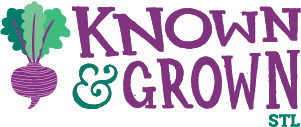Building a Better Food System: A Guide
The way our food is grown, raised, and sent to market exploits workers up and down the food chain. Farmhands are exposed to toxic chemicals, meat packing workers are exposed to dangerous conditions (especially during the pandemic), residents who live near factory farms have worsened air and water quality, and those who work in major grocery stores and big box stores are paid low wages and are put in dangerous situations.
Meanwhile, industrial agriculture is a leading cause of climate change, it poisons waterways with agricultural chemicals and animal waste, and destroys pollinator populations with pesticides applied to fields of monoculture crops (most of which are grown in our region for ethanol and animal feed – not to feed people).
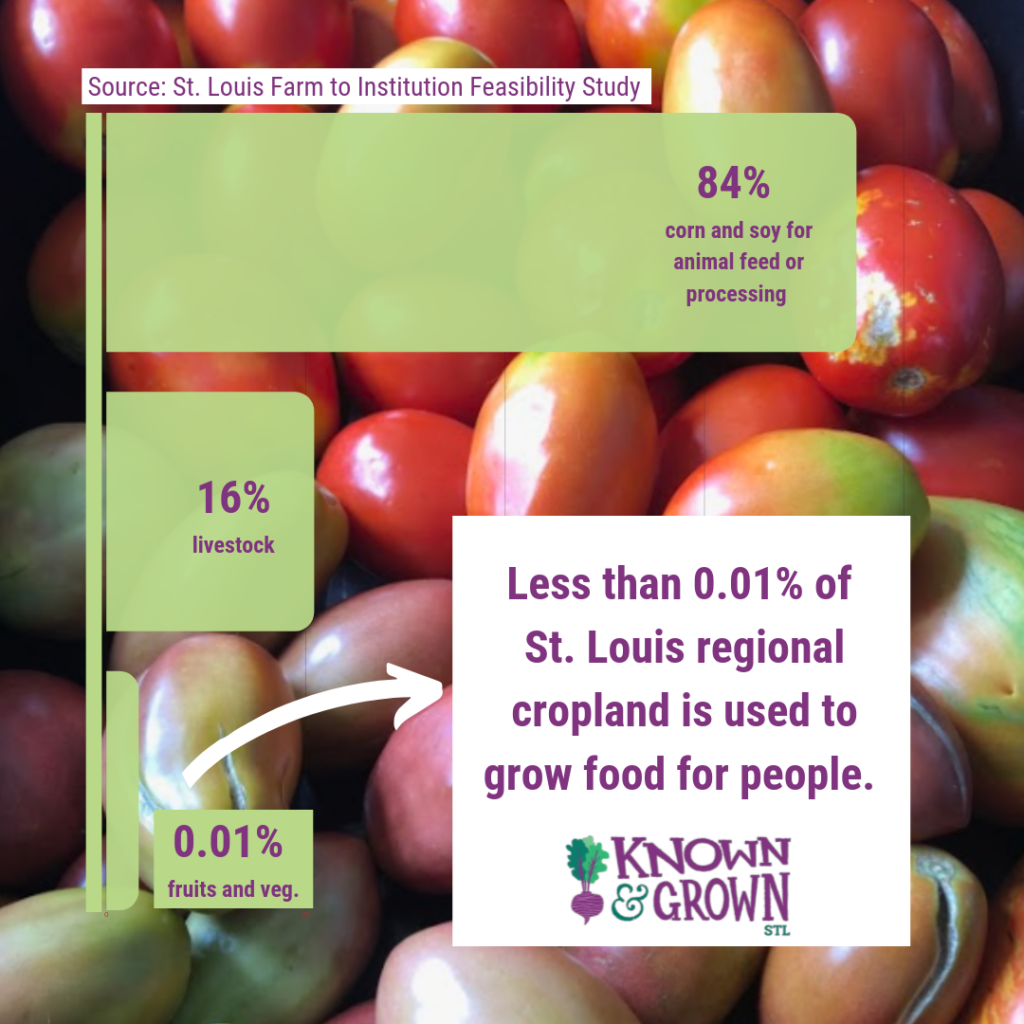
To make matters worse, the way factory farms treat animals – packed nose-to-tail on concrete slabs, fed food they did not evolve to eat, pumped full of antibiotics to keep them alive, and bred for a lack of genetic diversity – makes another zoonotic disease outbreak likely.
Transforming our Food System
Food sellers, from national fast food giants to mom and pop restaurants and retailers are laser-focused on customer satisfaction and demand. When customers demand change – from vegetarian options to less plastic – sellers listen and make adjustments.
Of course, structural and infrastructure changes are also needed to create a just and equitable food system, but this is one area where individuals have a lot of power. Your decisions can help make a sustainable farming make a living, sway the opinion of a chef or buying manager, influence the decisions of a national chain, or change the mind of a policy-maker.
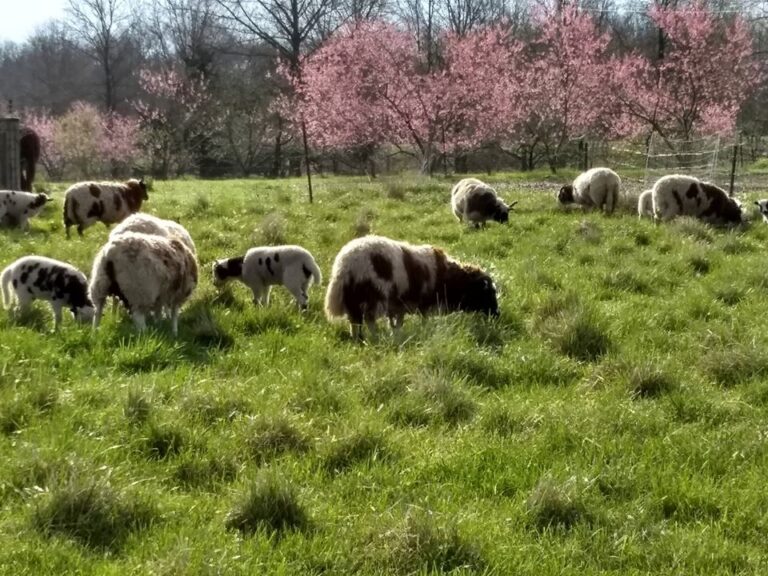
Build a Better Food System:
Here is a quick list of ways individuals can take meaningful action to build a better food system:
1. Know your farmer. This is actually easier than it sounds, even during the pandemic. You can learn all about farmers in our area by checking out the farmer profiles on our website and using this resource to find their products. Farmers in the Known & Grown program don’t use any synthetic chemicals on their produce or pasture, don’t confine animals, and use Good Stewardship Practices to protect our air, soil, and water.
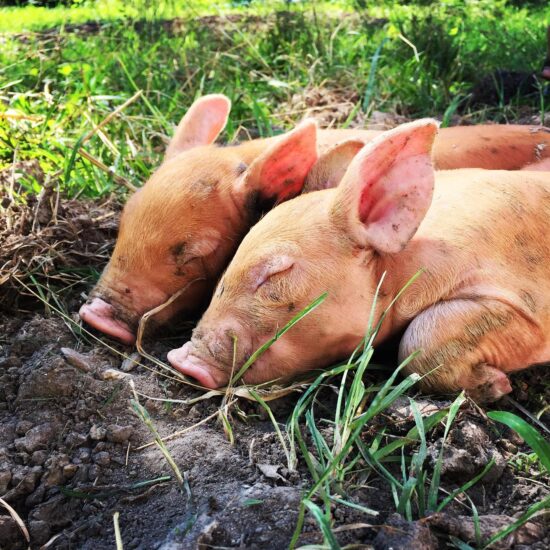
2. Ask where your food is coming from. This one can be tough at first – talking to strangers is hard and no one likes coming across as rude – but it can be done kindly and it gets easier with practice. Here are some steps to make asking easier:
- Do your research and figure out what’s important to you. Do you care most about pesticides? Farm workers? Animal welfare? Climate-friendly farming? Picking one topic and becoming conversational about why it matters to you will make talking about it much easier.
- Provide alternative solutions. Does your favorite restaurant or store offer factory-farmed meat? (The vast majority of meat in the USA comes from CAFOS, or Concentrated Animal Feeding Operations). Let them know that Known & Grown STL can help them find pasture-raised, local products. We are ready and willing to help. (Email Rae Miller at rmiller@moenviron.org)
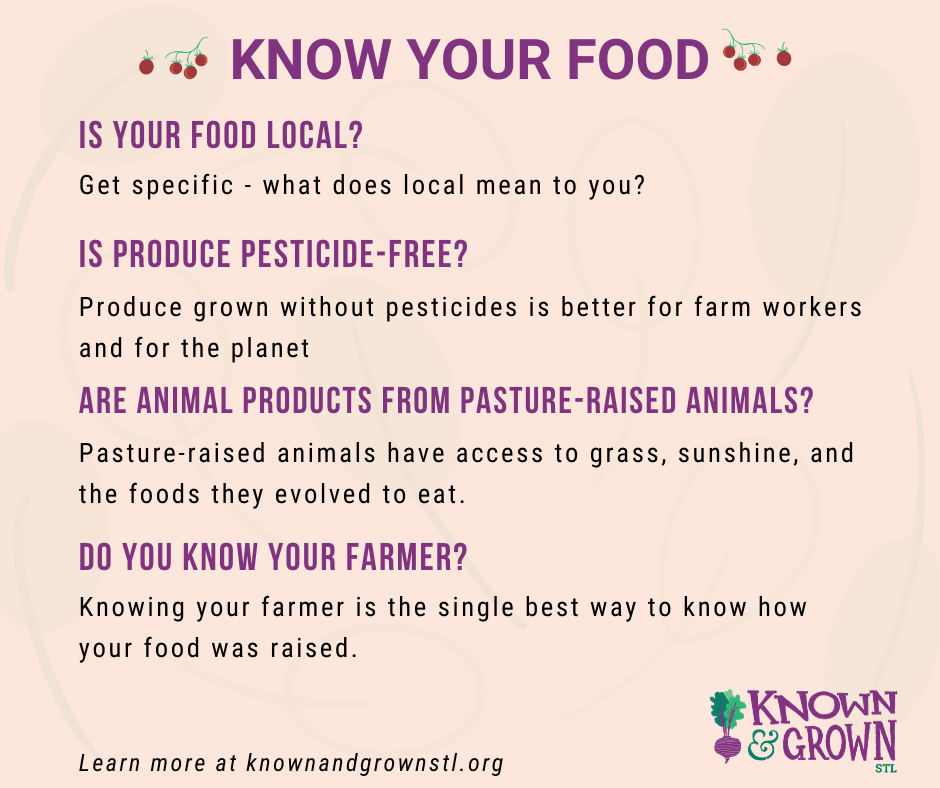
- Be kind in your messaging. It can be hard to understand why restaurants and retailers would offer food that is so bad for people and the planet. Unfortunately, the way our food system is set up makes it difficult to do otherwise. In fact, your reaching out may be the very first time anyone has ever talked to them about this issue. Be kind, and they might be more inclined to listen.
- Send a message via social media. Send a direct message at first – don’t start by posting on their wall or making public admonishments. Many businesses check their social media regularly and will respond quickly to a direct note.
3. Support farmers by supporting businesses that use their products. And when you buy from stores and restaurants that use products from local farmers, let them know why you’re supporting them. If businesses know that this matters to customers, they will make a consistent effort to source better food.
4. Educate yourself about food justice and food sovereignty. Follow and support groups who are working to make our food system more equitable, like the Food Equity Advisory Board here in St. Louis.
5.VOTE. Elect people who understand how the food system impacts human health, equity, and the environment.
